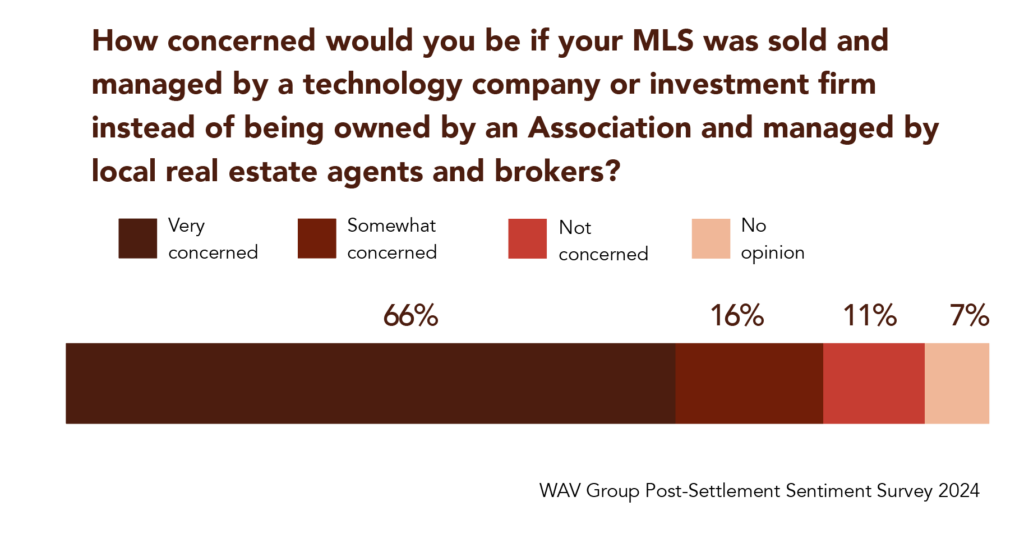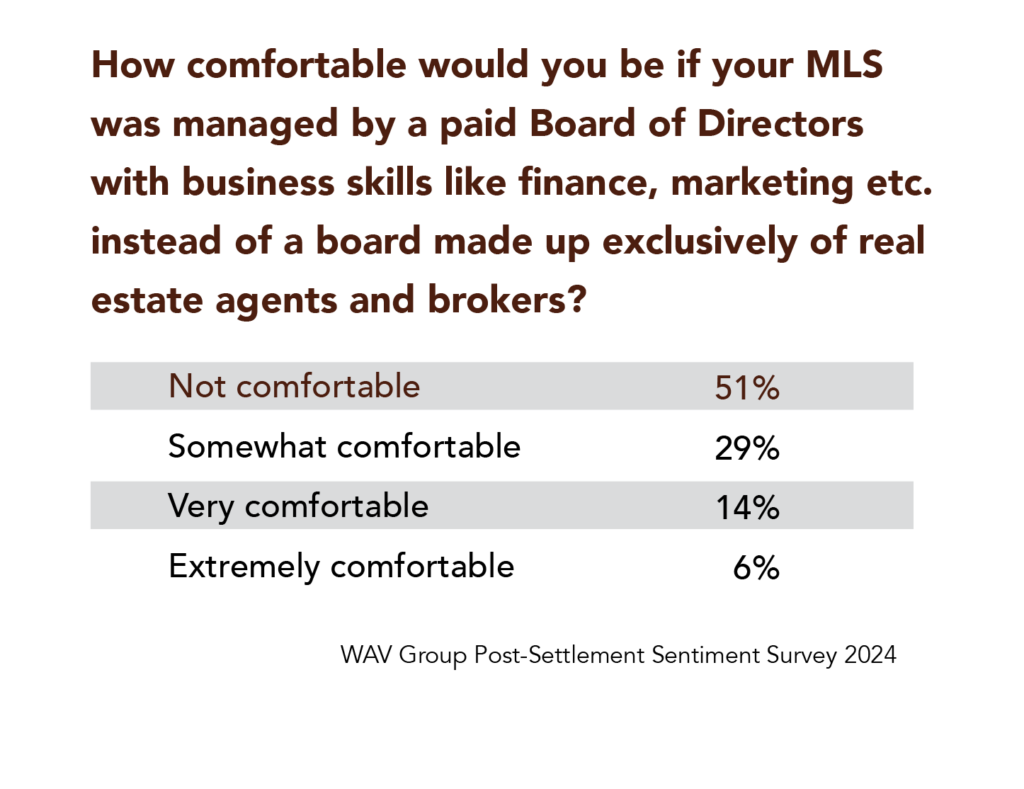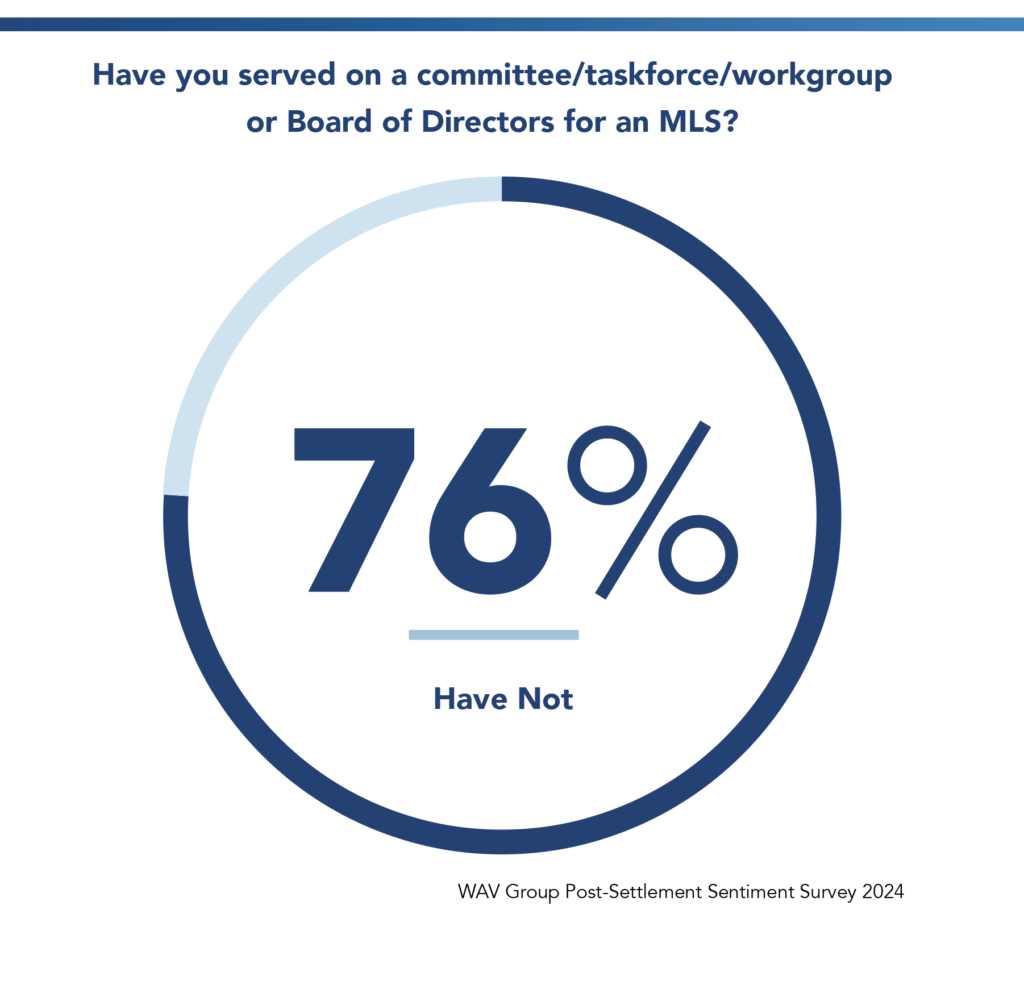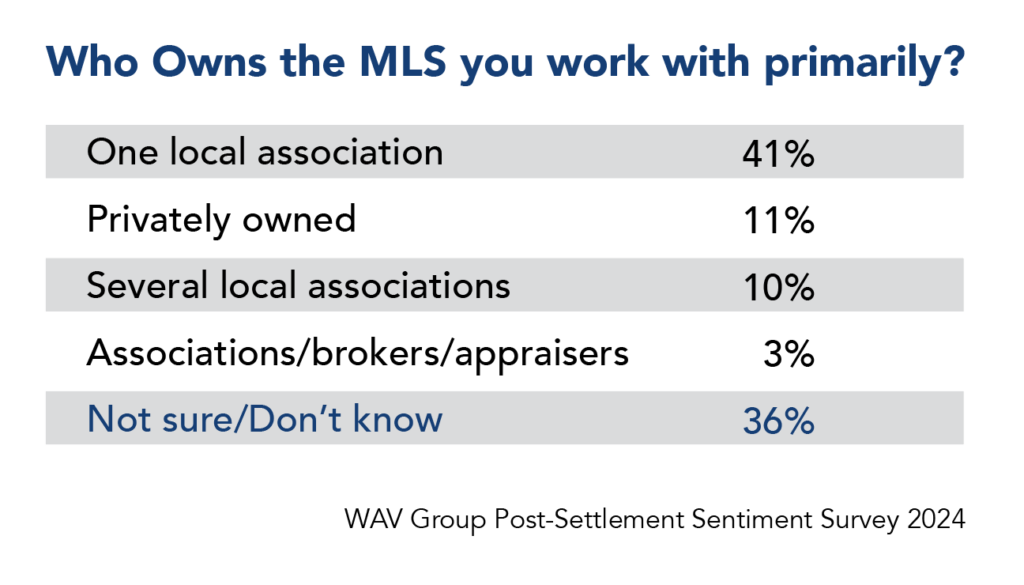 The WAV Group Post-Settlement Sentiment survey conducted in August 2024 reveals a strong resistance to private ownership of MLS organizations. 82% of respondents would be somewhat or very concerned if their MLS was sold to a private company or investment firm. This was a topic of much debate and chatter after the recent sale of REColorado to a private owner*.
The WAV Group Post-Settlement Sentiment survey conducted in August 2024 reveals a strong resistance to private ownership of MLS organizations. 82% of respondents would be somewhat or very concerned if their MLS was sold to a private company or investment firm. This was a topic of much debate and chatter after the recent sale of REColorado to a private owner*.
While the MLS has evolved into a technology company over the last several decades, the leadership and governance structures of these independent entities have lingered in their REALTOR association roots.
Based on the insights from the open ended responses in the survey, the underlying fear stems from a potential loss of control over local decision-making. Real estate professionals worry that external entities—who may not fully understand the nuances of the real estate industry—could make decisions that conflict with the best interests of local agents and brokers. For many, an MLS managed by outside investors or technology firms could prioritize profitability over service to the industry, resulting in decisions that disconnect from the needs of real estate practitioners and their clients. Without clarity on how much private entities may change business models, pricing or strategic priorities, it is difficult for practitioners to embrace the idea of outside ownership.
 An almost equal number of respondents were uncomfortable or somewhat uncomfortable with the idea of an MLS being managed by a paid Board of Directors with business skills (e.g., finance, marketing), rather than a board made up exclusively of real estate agents and brokers.
An almost equal number of respondents were uncomfortable or somewhat uncomfortable with the idea of an MLS being managed by a paid Board of Directors with business skills (e.g., finance, marketing), rather than a board made up exclusively of real estate agents and brokers.
As with the MLS ownership issue, the reasons behind this discomfort are clear. Real estate professionals fear that a management board lacking industry experience could make decisions that harm the local market. Many believe that outsiders—no matter their business acumen—might not understand the day-to-day realities of agents and brokers, leading to poor decisions. Additionally, there’s a concern that paid boards might prioritize financial gain over the best interests of the MLS and its customers.
Real Estate Professionals Focused On Their Own Businesses
Much of this concern over potential changes in the MLS ownership and leadership could be a general lack of awareness about the current MLS challenges. Only 24% of respondents had ever served on an MLS Board of Directors and a full 1 in 3 did not even know the current ownership structure of their MLS. Without firsthand experience or insight into the challenges faced by MLS boards, many real estate professionals may be unaware of the benefits of integrating diverse expertise, such as business professionals with skills in technology, finance, or marketing. This gap in awareness and experience reinforces hesitation toward leadership changes, despite the potential downsides of relying solely on practitioners for MLS governance. Continuing with the current leadership structures without introducing new perspectives may limit the MLS’s ability to evolve and address technology trends effectively.
While the survey reveals strong resistance to non-practitioner leadership, we believe it also highlights the challenge for agents and brokers to fully understand the diversity of expertise, technology acumen and customer service and training excellence needed to run an MLS like a technology company and not like an Association. Board of Directors leadership in Technology companies outside of real estate provide oversight and counsel, but do not attempt to make the level of tactical decisions MLS boards play today.
At WAV Group, we believe that a well-rounded Board of Directors, combining the practical insights of agents and brokers with the strategic skills of business professionals, can provide more comprehensive and forward-thinking MLS governance and decision-making. Business professionals with expertise in finance, technology, marketing, security and data strategies can contribute invaluable insights in areas where agents may not have specialized knowledge. A balanced approach can help MLS organizations navigate complex challenges more effectively, ensuring they remain competitive and innovative in a rapidly changing industry.
*The article has been corrected from an earlier version that misstated that REcolorado to a private equity firm.






